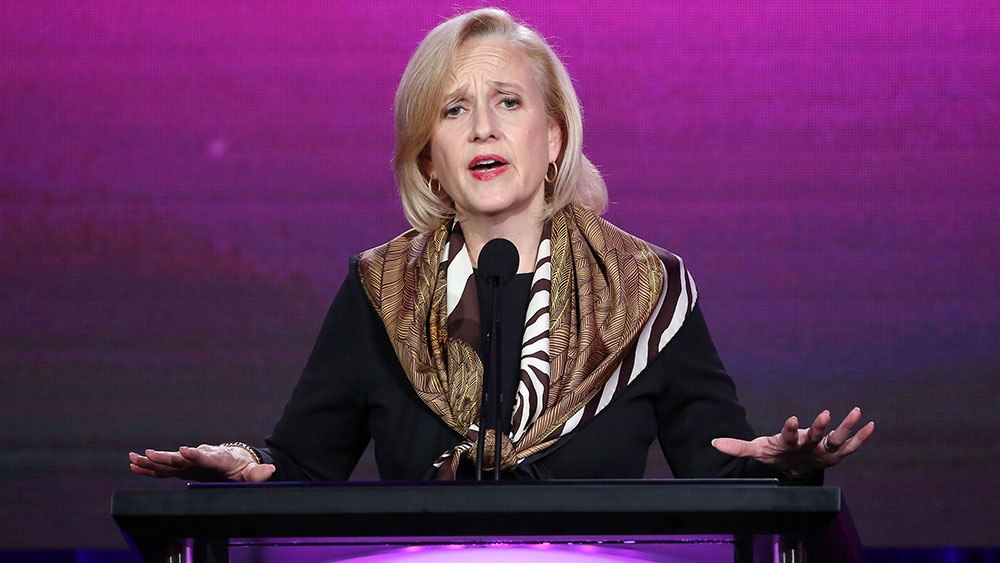LOS ANGELES — In a TV world filled with regime change, PBS’ Paula Kerger is the exception.
Already the longest-lasting head of a major network, Kerger announced Monday that she’s signed for five more years as the network’s president and CEO.
That’s not what she expected when she started the job 13 years ago, Kerger said. “I thought, ‘Five years, maybe.’”
She’s seen much of the network’s history. Kerger is 61 and grew up in a family that watched PBS … which marks its 50th birthday on Nov. 3.
During that time, the network has seen waves of challengers. In the early cable days “all the channels were created wih the idea that they would be the new PBS,” Kerger said.
They weren’t; Arts& Entertainment and The Learning Channel eventually shed the arts and learning. But new challenges emerged, from the British drama of Acorn and Britbox to the mega-documentaries of Discovery and National Geographic.
The key, Kerger said, is to know “what the brand represents,” while also making changes. Now PBS ranges from digital shorts to Ken Burns’ sprawling “Country Music” documentary series.
Also, Kerger announced:
— A five-part “Asian Americans” documentary, expected to air next May.
— A two-part “American Experience” profile of George W. Bush, next spring.
— An “American Masters” profile of Rita Moreno, sometime next year.
— And more – a renewal of “Daniel Tiger’s Neighborhood,” a new link with YouTube and a three-part show called “Prehistoric Road Trip,” hosted by Emily Graslie. She works in Chicago at the Field Museum as chief curiosity correspondent, which Kerger called “the coolest job title I’ve ever heard.”
